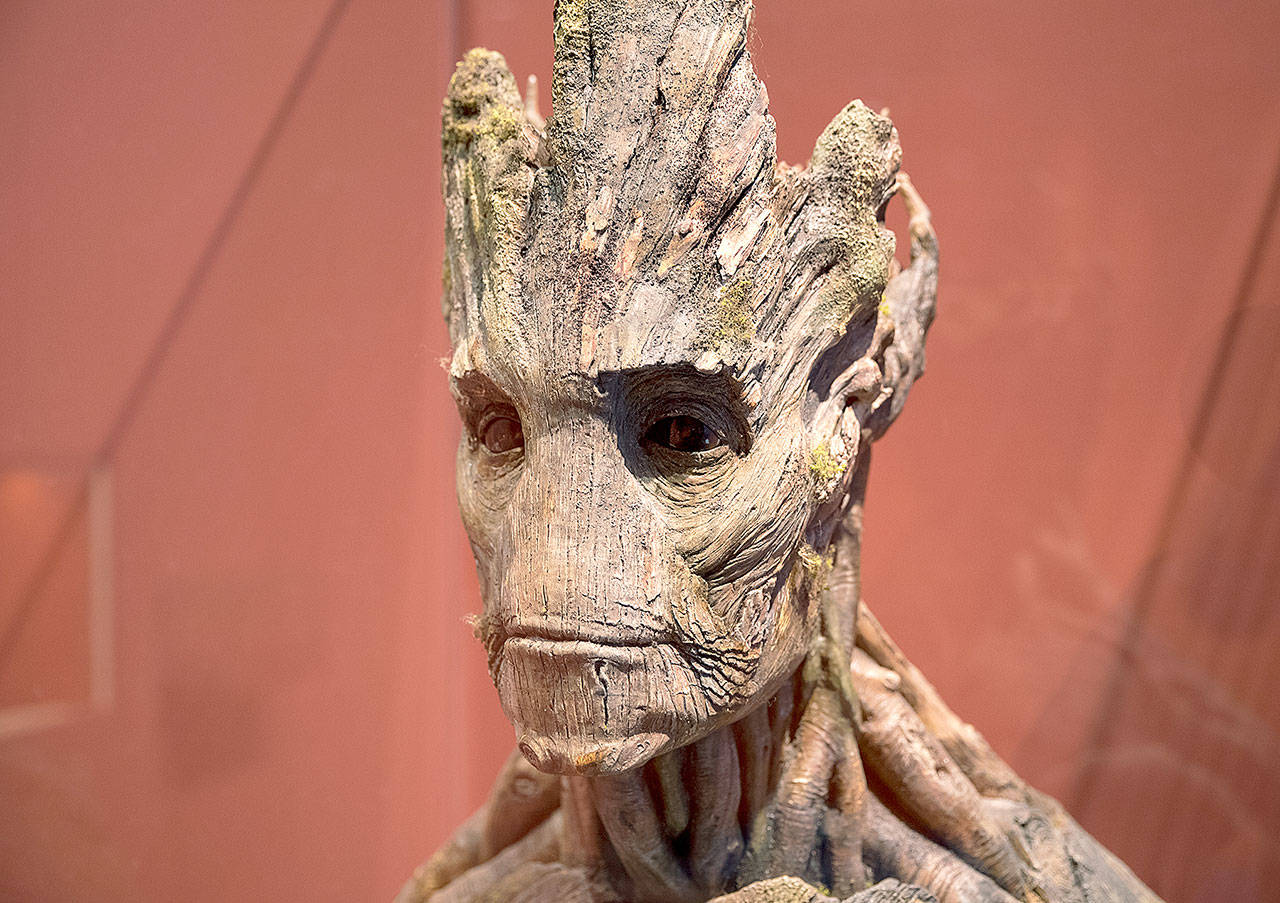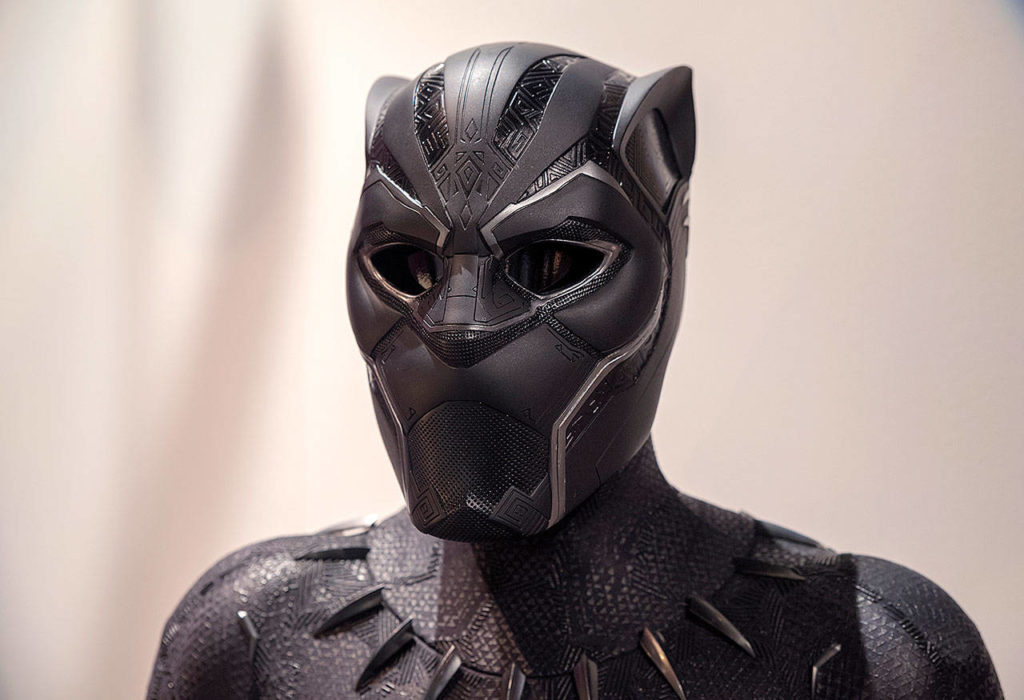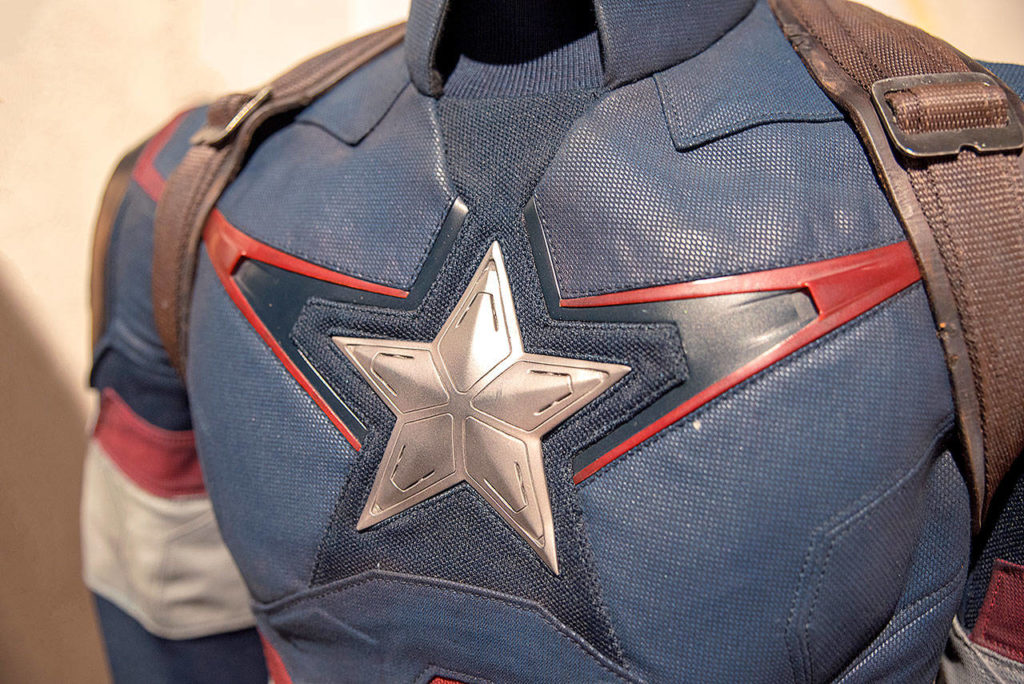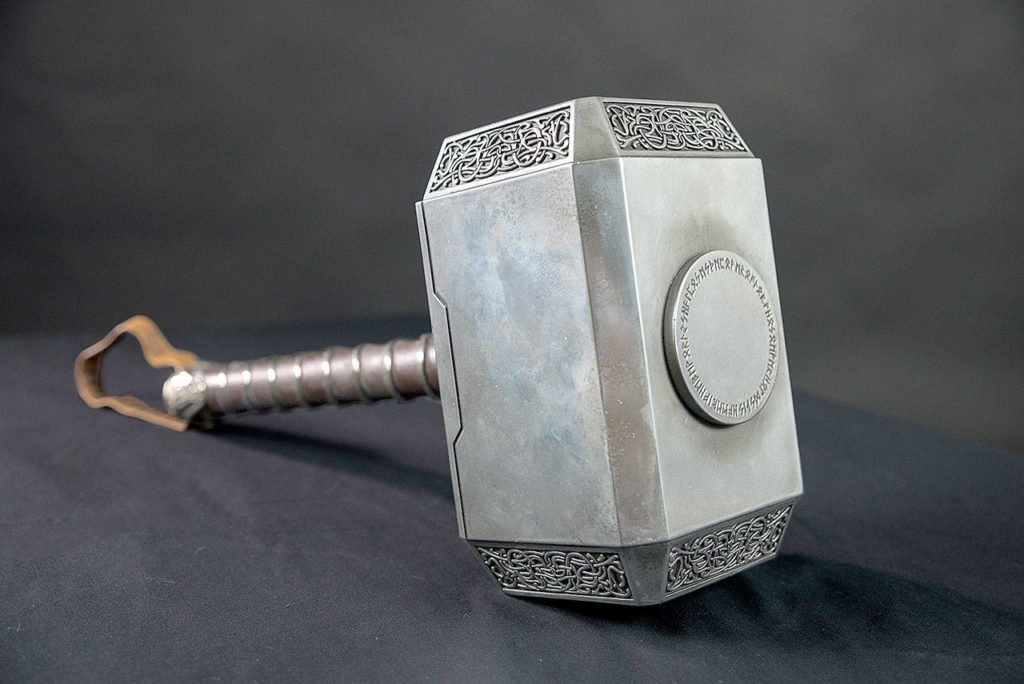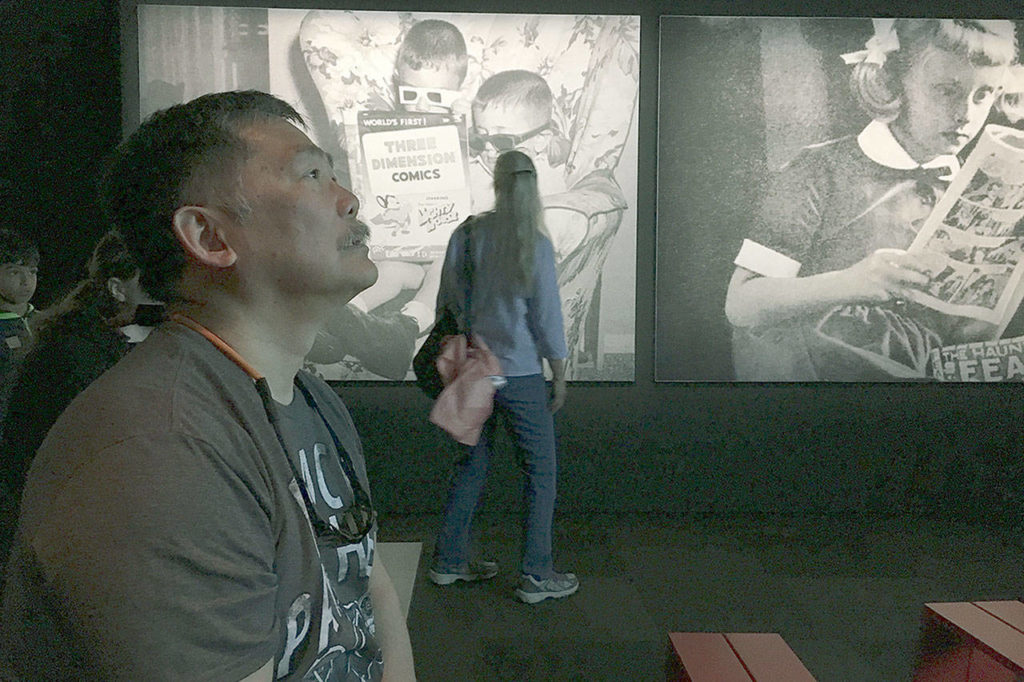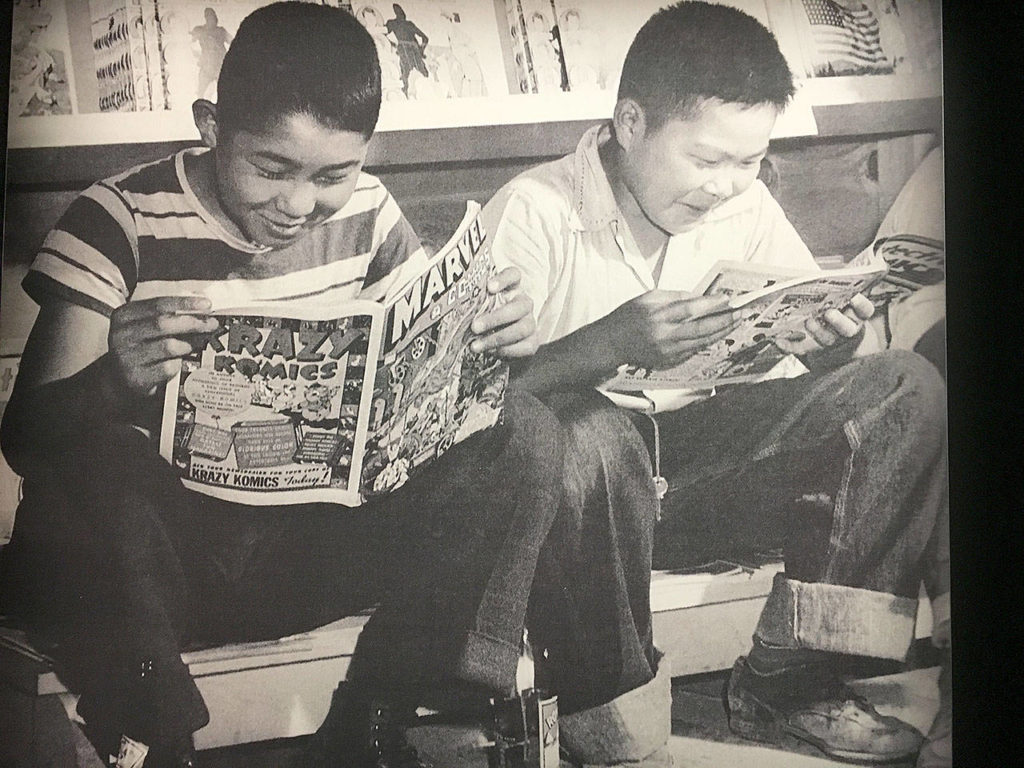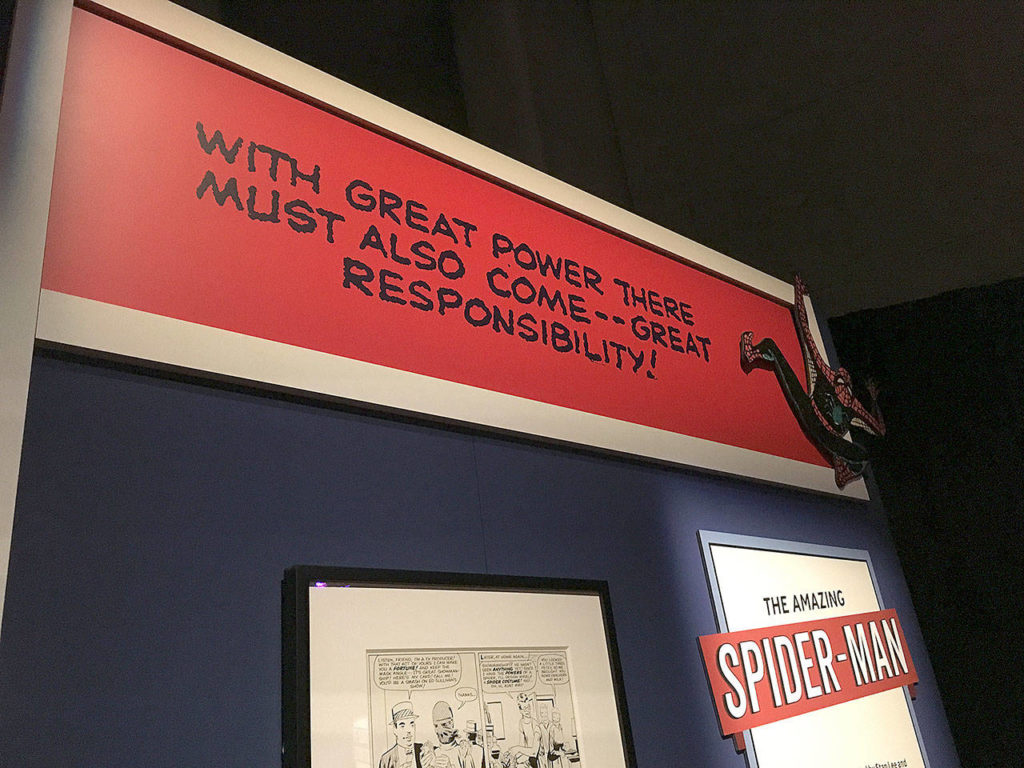SEATTLE — It’s been a decade since Marvel Entertainment launched its way into the mainstream consciousness with Robert Downey Jr.’s star-reviving turn in “Iron Man.”
Since then, dozens of movies and TV series have hit screens. Some have been monster successes (“Black Panther,” “Agents of SHIELD”) and others have been colossal duds (“Inhumans”). All of that sprang from the pages of comic strips and comic books, whose partial epic history is on display in incredible fashion at the Museum of Pop Culture.
“Marvel: Universe of Super Heroes,” up through Jan. 6, is the featured exhibit at the museum now called MoPOP but formerly known as the Experience Music Project. My dad and niece recently joined me for a visit to see the Marvel exhibit, with 300 pieces of original artwork, costumes and props.
The 80-year history of Marvel Comics/Entertainment is legendary. Stan Lee and Co. staved off ruin and found fame and fortune by expanding out of comic books and into movies and television (and now, of course, streaming). That story is told early on with some original pages featuring the “Sub-Mariner” and turns into a spectacle of costumes (outfits from the “Black Panther” movie are stunningly detailed), props (Thor’s hammer and Captain America’s shield are iconic now), and videos (we were enthralled by the faux-hologram of Ant-Man and the Wasp in miniature form on a shelf).
Take the time to pose for photos and/or selfies with the Instagram-worthy Black Panther, Hulk, Kamala Khan (Ms. Marvel), Spider-Man and Thing statues or the Iron Man augmented reality suit simulator.
It’s hard to imagine, but “Iron Man” in 2008 was Marvel’s first move into the mainstream culture. Some of that is laid out in the exhibit itself, which is part company history and part reflection of what made and makes the characters relevant and unique.
Take the X-Men for example. The series’ first movie preceded “Iron Man” by eight years and was largely viewed as a parable for gay rights. When the mutants made their comic book debut, they were viewed as paralleling the Civil Rights Movement, with some citing Professor X as a stand in for Martin Luther King Jr., and Magneto as Malcolm X.
In the comics and movies, the inherent tension is the fear some people have because others are born who act, are and look different. The MoPOP exhibit specifically notes this with a panel describing, “The super hero as a metaphor for difference.”
Something that struck me was the shifting winds that carry Captain America, who is as American as apple pie and comic books. A panel explains some of Steve Rogers’ infamous deeds during presidencies stretching from Franklin D. Roosevelt all the way to Barack Obama. So far, there hasn’t been anything featuring Donald Trump and Cap’, though there was a deeply divisive reveal in 2016 that he was working for Hydra, the authoritarian terrorist group once run by his nemesis, Red Skull.
Others, like the hugely popular Spider-Man, were created to convey the sense of then-modern adolescence. Peter Parker was, after all, a shy teen before his radioactive spider bite. Even that came with caveats, like his ethos to treat his great power with great responsibility.
Comics to me were a bonding experience between my father, younger brother and I. We would read the latest X-Men adventures and watch the Saturday morning cartoons. Now that the movies are in theaters seemingly every other month, we can bond over that, too.
But Marvel occupies a larger place in American culture. Their stories contain our new myths and heroes, showing us the perils, potential and virtue of immense power. In place of Hercules, we have the Hulk. Instead of Thor and Odin, we have… Thor and Odin.
Ancient civilizations’ children grew up hearing the tales of Hercules’ Labors or Odin’s wisdom. Today, children will know Hulk’s Smashes and Captain America’s bravery.
Ben Watanabe: bwatanabe@heraldnet.com; 425-339-3037; Twitter @benwatanabe.
If you go
What: “Marvel: Universe of Super Heroes”
When: 10 a.m. to 7 p.m. daily (extended in summer), through Jan. 6
Where: Museum of Pop Culture, 325 Fifth Ave. N., Seattle
Tickets: $27-$36 and includes museum admission
More: 206-770-2700 or www.mopop.org
Talk to us
> Give us your news tips.
> Send us a letter to the editor.
> More Herald contact information.
